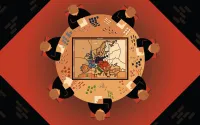 Links between the fertiliser plotters and the 7 July bombers have brought MI5's work into sharp focus |
2 May 2007Frank Gardner
The security service and police are monitoring about 2,000 individuals who they say are actively involved in supporting al-Qaeda.
Some are thought to have direct links with al-Qaeda in Pakistan.
The fertiliser bomb plot case has highlighted the links to terrorist training camps in Pakistan.
More than 400,000 Britons each year go to Pakistan on innocent family visits.
But Pakistani intelligence agents cannot follow everyone.
And from cites like Karachi, it's easy for Jihadist recruits to head up into the hills to training camps hidden in areas like Malakand.
There, they're taught explosives and weapon handling by al-Qaeda veterans.
This is how the London bombers got their final training before returning to Britain.
Peter Neumann, from King's College's Defence Studies centre, said: "I think this is the strongest connection that we are confronted with at the moment, not least because of the historical connections between Pakistan and Britain and this is most likely to be the greatest source of vulnerability - especially for Britain."
Active planning
The al-Qaeda nexus is extensive.
Its core base is now in and around Waziristan - close to the Pakistan/Afghan border.
Operatives travel from there to Britain. New recruits fly in the other way.
There are also links with al-Qaeda insurgents in Iraq.
And those, in turn, are linked back to Britain, where young Jihadis have been coming back from Iraq.
The bottom line is that core al-Qaeda is still actively planning operations against the West.
Jihadi internet videos link up al-Qaeda followers around the world. Now even the Taleban are using the internet.
Back in Britain, all this translates into a rich recruiting ground for al-Qaeda.
MI5's 2,000 terror suspects are likely to keep growing in number.






